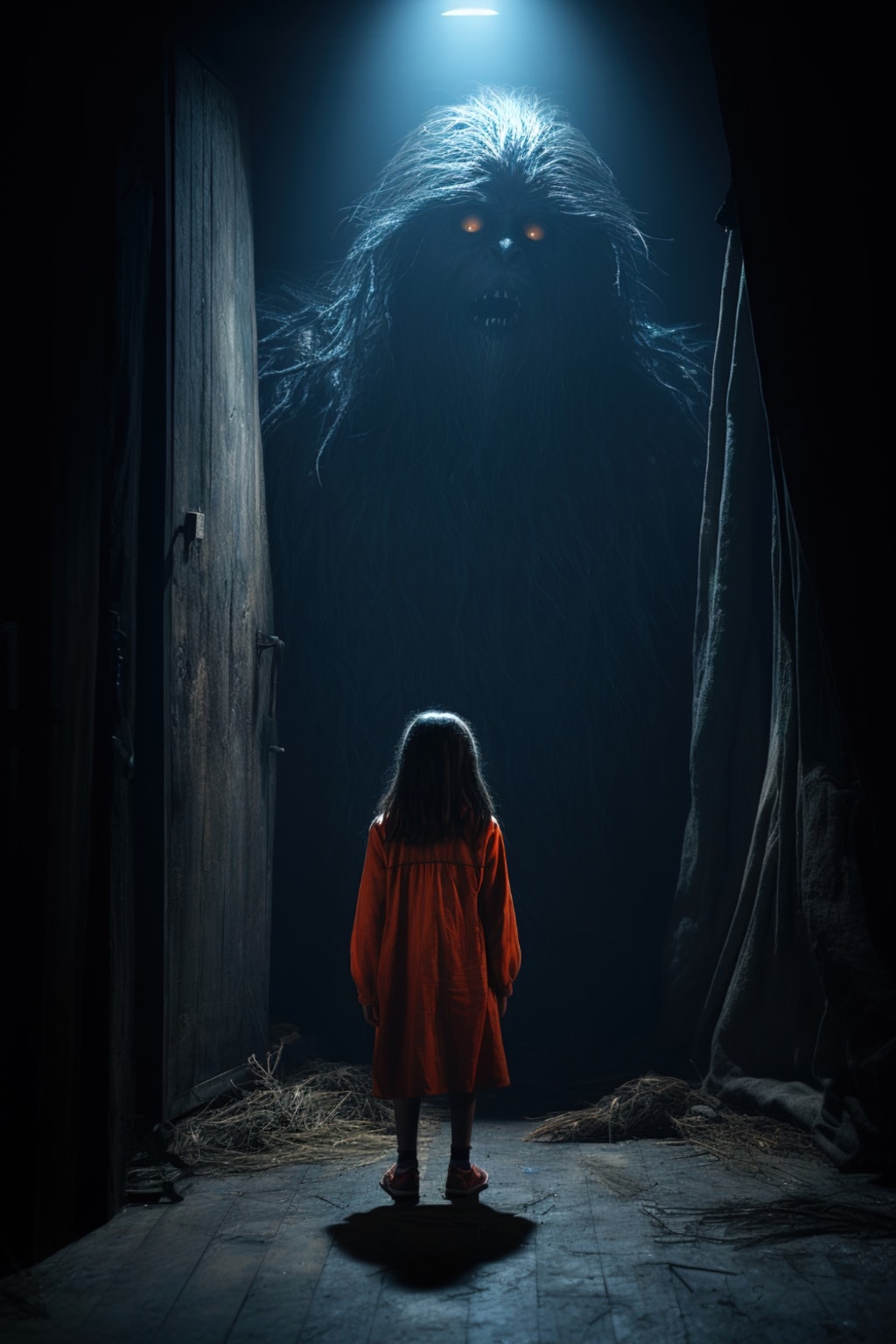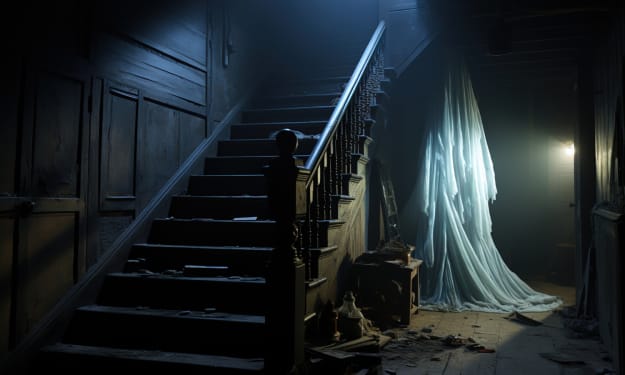A Journey Through the Evolution of Horror Stories
From Ancient Myths to Virtual Nightmares: A Chronicle of Fear's Evolution

The evolution of horror stories has taken them through various stages from ancient times to the modern era. In ancient civilizations, horror often manifested through folklore, myths, and supernatural tales that explained the unknown. These stories often revolved around gods, monsters, and otherworldly creatures.
During the Gothic era in the 18th and 19th centuries, horror literature gained prominence with works like Mary Shelley's "Frankenstein" and Bram Stoker's "Dracula." These stories explored themes of science, the supernatural, and the macabre, reflecting societal fears and anxieties of the time.
In the 20th century, horror branched into various subgenres. The psychological horror of works like H.P. Lovecraft's stories and Alfred Hitchcock's films played on the fear of the unknown and the human psyche. Slasher films in the latter half of the century, like "Halloween" and "Friday the 13th," introduced a more visceral and explicit form of horror.
Modern horror storytelling has become more diverse and reflective of contemporary fears. It includes elements of technology, social issues, and psychological complexity. Found footage films like "Paranormal Activity" leverage realism to increase the scare factor, while psychological horror like "Get Out" delves into deeper societal and cultural fears.
Literary Roots: Horror can be traced back to ancient civilizations such as Greek and Roman mythology, where tales of supernatural beings and curses were told. These stories often had moral or cautionary elements.
Gothic Era: The 18th and 19th centuries saw the rise of Gothic literature, characterized by eerie settings, psychological tension, and a focus on the unknown. Works like Edgar Allan Poe's stories and Sheridan Le Fanu's "Carmilla" contributed to this genre.
Pulp Horror: The early 20th century witnessed the emergence of pulp horror magazines, featuring short stories filled with monsters, creatures, and bizarre events. Authors like H.P. Lovecraft introduced cosmic horror, emphasizing humanity's insignificance in the face of ancient and powerful forces.
Horror Films: The 20th century brought horror to the big screen. Classic films like "Nosferatu" (1922) and "Psycho" (1960) left lasting marks on the genre. Advances in special effects and makeup led to more realistic portrayals of monsters and violence.
Cultural Reflection: Horror often reflects the fears of its time. Cold War anxieties can be seen in creature features like "Godzilla" (1954), while the zombie genre gained popularity as a commentary on consumerism and societal decay.
Slashers and Supernatural: The late 20th century gave rise to slasher films like "A Nightmare on Elm Street" (1984) and supernatural horror with "The Exorcist" (1973). These subgenres focused on shock, gore, and suspense.
Meta-Horror: In the late 20th and early 21st centuries, meta-horror films like "Scream" (1996) and "Cabin in the Woods" (2012) played with genre conventions and self-awareness, adding layers of complexity.
Asian Horror Influence: Asian cinema, particularly Japanese and South Korean horror, introduced new storytelling techniques and themes. Films like "Ringu" (1998) and "A Tale of Two Sisters" (2003) brought psychological and supernatural horror to global audiences.
Modern Psychological Horror: Recent years have seen a resurgence of psychological horror with films like "Hereditary" (2018) and series like "The Haunting of Hill House" (2018). These works delve into family trauma, grief, and the fragility of the human mind.
Technology and Social Media: Modern horror incorporates technology and social media as sources of terror. Films like "Unfriended" (2014) and "Host" (2020) use the digital realm to amplify horror experiences.
Cultural Diversity: The horror genre has become more inclusive, featuring diverse casts and exploring different cultural beliefs and folklores. Films like "Get Out" (2017) and "The Babadook" (2014) tackle societal issues alongside horror.
Streaming Platforms: The rise of streaming platforms has allowed for a wider range of horror content, from short films to anthologies to international releases, catering to a diverse audience.
Evolution of Monsters: Throughout history, the portrayal of monsters in horror stories has evolved. Ancient tales featured creatures from folklore and mythology, while modern horror introduced new types of monsters like extraterrestrial beings, mutants, and even man-made abominations.
Literary Influences: Many horror stories have been influenced by other genres and literary movements. For example, the Romantic movement's focus on emotion and nature had an impact on Gothic horror, while science fiction elements have often blended with horror to create hybrid genres like "sci-fi horror."
Subversion of Expectations: As horror evolved, storytellers began to subvert audience expectations. Classic horror tropes were turned on their heads in films like "The Cabin in the Woods," challenging viewers' perceptions of the genre.
Cultural Impact: Horror stories have played a role in shaping cultural norms and values. For instance, the "Final Girl" trope, where a female character survives and defeats the antagonist, reflects changing gender dynamics and women's empowerment.
Horror Comedy: The evolution of horror also includes the emergence of horror-comedy, where elements of horror are combined with humor. Films like "Ghostbusters" (1984) and "Shaun of the Dead" (2004) showcase how horror can be entertaining and amusing simultaneously.
Transmedia Storytelling: With the advent of new media platforms, horror stories have expanded beyond traditional mediums. Video games, interactive experiences, and alternate reality games allow audiences to immerse themselves in terrifying narratives.
Cinematic Techniques: The evolution of filmmaking techniques has greatly impacted horror storytelling. Advances in cinematography, sound design, and visual effects have heightened the intensity and immersion of horror experiences.
Global Horror: Horror stories from different cultures offer unique perspectives on fear and the supernatural. Works like "The Ring" (Japan) and "Train to Busan" (South Korea) demonstrate how cultural nuances influence horror narratives.
Reimagining Classics: The horror genre often reimagines and updates classic stories for modern audiences. This can be seen in adaptations like the various incarnations of "Dracula," which explore new themes while retaining the essence of the original.
Exploration of Taboos: Throughout its evolution, horror has pushed societal boundaries by exploring taboo subjects. Themes of sexuality, violence, and psychological trauma have been examined in ways that challenge comfort zones.
Environmental Horror: As environmental concerns rise, some horror stories have begun incorporating ecological and environmental elements, reflecting fears about the future of the planet.
Virtual Reality and Augmented Reality: Emerging technologies like virtual reality (VR) and augmented reality (AR) offer new dimensions for horror storytelling, allowing users to be fully immersed in terrifying environments.
In summary, the evolution of horror stories is a rich tapestry of cultural influences, technological advancements, and artistic experimentation. From ancient myths to modern virtual realities, horror remains a dynamic and ever-evolving genre that continues to captivate and disturb audiences around the world
About the Creator
Edwin Kingsly
i will write christian related and social contents.Also,stories like horror,moral,fiction






Comments
There are no comments for this story
Be the first to respond and start the conversation.